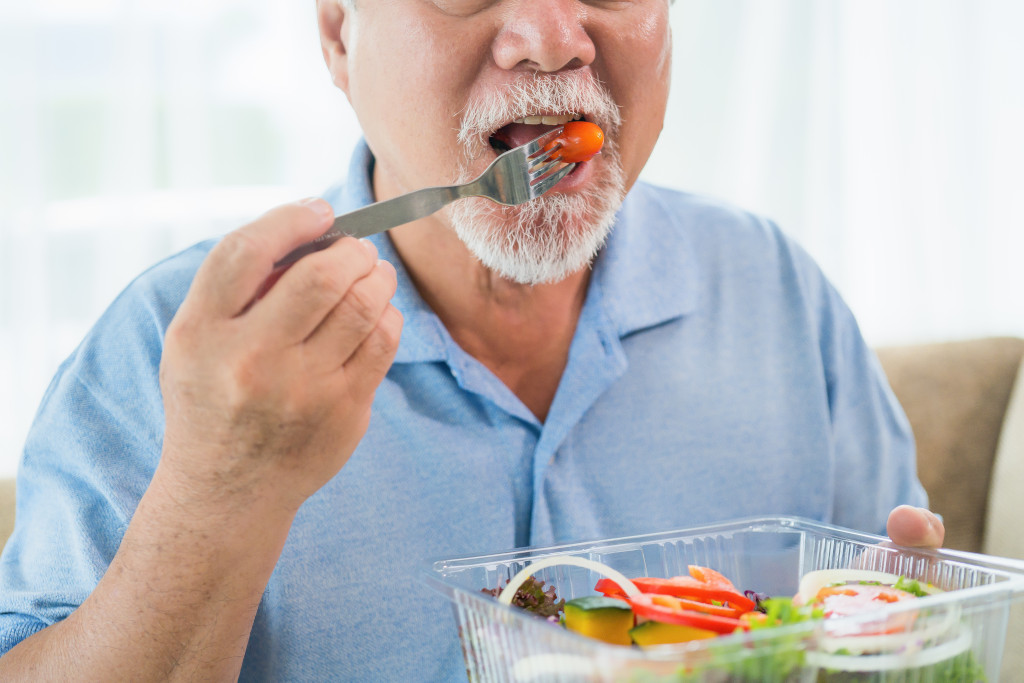Navigating nutrition and hydration during palliative care can be a challenging and nuanced aspect of supporting individuals facing serious illnesses. As loved ones and caregivers seek to provide the best possible comfort and quality of life, understanding the role of nutrition and hydration becomes essential. We discuss the importance of proper nutrition and hydration in palliative care, exploring how tailored dietary strategies can enhance well-being, manage symptoms, and offer dignity and comfort during a difficult time.
To begin, let’s untangle a common misconception: the conflation of palliative care with end-of-life care. While these terms are frequently lumped together, there are distinct differences.
Palliative care focuses on improving the quality of life for individuals facing serious illnesses by addressing their physical, emotional, and spiritual needs. It can be provided alongside curative treatment and is not limited to individuals in the terminal stages of their illness. Palliative care aims to alleviate symptoms, manage pain, and enhance overall well-being.

End-of-life care, on the other hand, specifically refers to the care provided to individuals who are nearing the end of their life, typically within the last few weeks of life. It focuses on ensuring comfort, dignity, and quality of life for patients who are no longer pursuing curative treatment. End-of-life care may involve symptom management, emotional support, assistance with advance care planning, and facilitating a peaceful and dignified death.
Good nutrition plays a crucial role in palliative care, which focuses on improving the quality of life for individuals facing serious illnesses and relieving their symptoms, rather than curing the underlying disease. Here are several reasons why good nutrition is important in palliative care:
Overall, good nutrition is an integral part of holistic palliative care, helping to optimise physical, emotional, and social well-being for individuals facing serious illnesses, and improving their overall quality of life during what can be a very challenging time.
Bear Brady, Lifestyle Lead at our Albany Lodge Care Home, adds:
“As a caregiver in the context of palliative care, the primary goal is to respect the individual’s wishes and preferences while ensuring their comfort and dignity. While we strive to maintain a semblance of familiarity and comfort by offering foods and drinks that they’ve always enjoyed, we do so with a deep understanding that each person’s journey is unique. Some may eagerly partake, while others may find their appetite waning as they near the end of life. Regardless of the scenario, our commitment to honouring their choices and preferences with utmost respect remains unwavering. Ultimately, in the final weeks, if someone decides against eating or drinking or finds themselves unable to do so, we embrace this decision wholeheartedly. It’s essential to honour their autonomy and choices.
Encouraging someone to eat or drink against their wishes could lead to discomfort, distress, or even aspiration, particularly if they have difficulty swallowing or have lost their appetite due to their illness. Instead, we focus on providing alternative methods of comfort and support, such as mouth care, moistening the lips, or offering small sips of water if the individual desires.
It’s crucial to have open and honest communication with the individual and their family members or caregivers about their preferences regarding eating and drinking. In some cases, they may choose to continue eating and drinking as long as they are able, while others may naturally lose their appetite as part of the end-of-life process.
Ultimately, our role as the caregiver is to provide compassionate support and ensure the individual’s comfort, respecting their autonomy and dignity throughout the end-of-life journey. This may involve addressing other sources of distress or discomfort, such as pain, shortness of breath, or emotional distress, rather than focusing solely on food and fluids.”
In palliative care and end-of-life care, nutrition poses several key challenges and considerations that need to be addressed to ensure the comfort and well-being of the individual:

Addressing these key issues requires a multidisciplinary approach involving healthcare professionals, nutritionists, caregivers, and family members working together to provide personalised and compassionate care tailored to the individual’s needs and preferences.
Bespoke end-of-life care planning is a crucial component of a resident’s introduction into our care. We carefully and sympathetically have those discussions around how a resident wants their journey to conclude and we rely on our end-of-life values to guide us through the process.
Tailoring end-of-life care for residents in a care home involves a deeply empathetic and personalised approach, especially when it comes to addressing their nutritional needs and preferences. Across the Future Care Group homes, bespoke End-of-life care planning is fundamental to each resident’s journey, ensuring that their wishes are respected and upheld with sensitivity and compassion.
When a resident enters our care, we initiate discussions with them and their families regarding their preferences for end-of-life care whilst upholding our fundamental end-of-life values. These conversations are pivotal in understanding their desires and crafting a tailored plan that honours their wishes. We recognise the importance of involving families in this process, acknowledging their integral role in their loved one’s journey.
Brady tells us:
“As the journey progresses, it’s common for residents to experience a decrease in appetite. To address this, our in-house chefs diligently prepare a range of options tailored to individual needs, including supplements and fortified drinks to ensure residents receive adequate nutrition and hydration. Understanding that each resident’s dietary requirements may vary, our chefs are adept at catering to all levels of the International Dysphagia Diet Standardisation Initiative (IDDSI), as well as providing fortified foods and fluids for those with specific needs identified by the Speech and Language Therapy (SALT) team.
Building close relationships with residents is essential for our chefs as it enables them to understand preferences and adapt menus accordingly. For some residents, particularly those nearing the end of life, a shift towards sweeter foods and desserts may be preferred, and our chef ensures these options are readily available. Additionally, as residents may reach a stage where they are unable to consume solid foods, we offer alternatives such as fortified liquids and use innovative methods like administering oil on sponges to prevent mouth dryness.
Recognising the potential effects of dehydration at end of life, we prioritise hydration management to alleviate discomfort. While dehydration may have a paradoxical effect of dulling sensations and reducing pain for some individuals, we remain vigilant in ensuring adequate hydration to promote comfort and well-being.
Our approach to catering for palliative and end-of-life residents goes beyond sustenance. It embodies a commitment to dignity, respect, and individualised care, ensuring each resident’s journey is supported with warmth, understanding, and culinary expertise”.
If you would like more information on our end-of-life care provision, you can either contact us online, or call us direct on 02045 862 548 and speak to a member of our very friendly staff. Alternatively, why not book a visit to one of our eighteen homes and see our award-winning carers in action firsthand.

We are proud to have been recognised as one of the Top 20 recommended care home groups in the country by UK’s leading care home reviews website carehome.co.uk

In partnership with Waste King, our rubbish is recycled by extracting as much material as possible maximising recycling. Waste reports are generated to indicate material breakdown and compliance with disposal regulations.
The waste we produce is carefully managed and disposed of by Waste King. They responsibly recycle as much material as possible through a network of licensed waste transfer stations. Transportation of all materials is conducted by the closest depot to reduce carbon emissions.
Click here for more information